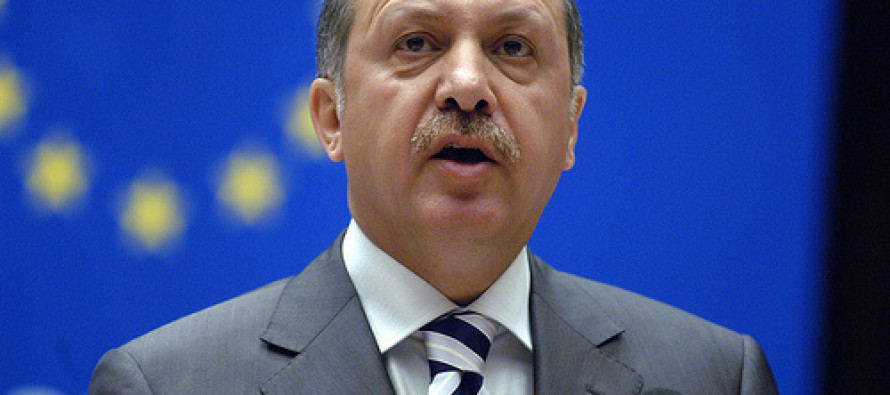Dhaka and Ankara ties: A new horizon of cooperation

Bigger than France, Turkey is a part of Europe and Asia and adjoins oil-rich Iran and sits astride the Dardanelles and Bosphorus straits. Its geopolitical importance is recognised by all big powers.
Prime Minister of Turkey, Recep Tayyip Erdogan (56) and his wife Madam Emine Erdogan visited Bangladesh on 13-14 November. Erdogan has been the Prime Minister since 2003. During his tenure, Turkish engagement with outside world and in the region has increased through its pro-active political and economic policies making the country a key regional player.
The ties of Bangladesh people to Turkey deep and people of Bangladesh have great respect to the Turkish leader Kemal Ataturk (father of the Turks), the founder of modern Turkey. Bangladesh’s national poet late Kazi Nazrul Islam in the 20s and 30s wrote many poems in which he lauded the leadership of Kemal Ataturk.
A main avenue in Dhaka was named after the Turkish leader Kemal Ataturk and so also a school was also named after the leader in a rural area (Noakhali) in Bangladesh. There is a Turkish Hope International School at Uttara suburb, near Dhaka’s airport.
People of both countries have deep commitment to democracy and other liberal traditions. Both people fought to achieve their independence.
Bangladesh’s relations with Turkey are excellent and mutually supportive and they have been nourished by the successive governments of both countries through high bilateral visits.
President Zillur Rahman of Bangladesh visited Istanbul for four days from 6th November 2009 to attend to the Economic Summit of Standing Committee for Economic and Commercial Cooperation by the OIC and had fruitful discussions while he met the Turkish President. On his invitation, the Turkish President Abdullah Gul in February this year.
Finance Minister of Bangladesh A. M. A. Muhith attended the Bangladesh-Turkey Joint Economic Cooperation in Turkey from 17 to 20th November 2009.
Given the warm bilateral relations, the visit of the Turkish Prime Minister to Bangladesh is the second highest political interaction with Bangladesh leaders and assumes great importance for economic cooperation between the two countries.
The economy of Turkey has registered a growth of 7% per cent this year. Turkish commencial influence over northern Iraq is overwhelming. It has signed a Free Trade Agreement with Jordan and it says that trade with Iran is to triple within next five years.
During the visit, the two sides signed agreements on cooperation in health sector and on exchange of land for embassies in Ankara and Dhaka. Air connectivity by Turkish Airlines between the two countries is expected to begin by next month.
Bilateral trade has increased considerably. In the last one year, from September 2009 to October 2010, two-way trade amounted to $927 million, according to the Federation of Bangladesh Chambers of Commerce and Industry. Both countries agreed to increase the trade volume to at least $3 billion by 2015.
Fikret Cicek, President of the Turkey-Bangladesh Chamber of Commerce and Industry, told the media that his country’s carpet industry had been a major importer of jute yarns from Bangladesh. ‘Now Bangladeshi readymade garments are seeing a bigger opportunity in Turkey,’ said Fikret. He listed major Turkish exports to Bangladesh as textile dying machinery, chemicals, power generators, steel products and red lentils.
Bangladesh side sought investment from Turkey in various sectors such as infrastructure, energy, agro-based industries, ICT, textile, and river dredging. It was pointed out that Bangladesh was a good destination for relocating Turkish RMG factories and other industries to make their exportable products more competitive in world market with availability of skilled cheap labour.
The Turkish Prime Minister expressed his country’s support to Bangladesh so that it can turn into a middle-income country by 2021.He also expressed his country’s willingness to enhance cooperation in education sector.
Mentioning the excellent bilateral relations exist between Bangladesh and Turkey, Prime Minister Erdogan hoped that the relations would be further enhanced with the expansion of trade and business between the two countries.
Turkey and Bangladesh are members of D-8 Commission and both countries cooperate with each other in sectors agreed at the summit of the D-8 Commission in July this year in Nigeria, participated by Bangladesh Prime Minister.
Bangladesh and Turkey have renewed pledges to work closely in different international fora to maintain world peace and security as well as combating terrorism in all its forms and manifestations
The core of Turkish invigorated foreign policy is to pursue friendly relations with neighbours coupled with removing regional and global tensions. Turkey has adopted diplomatic initiatives to offer mediation in regional disputes – such as between the US and Iran, Iraq and Syria, and Israel and Syria. Turkey has also played a positive role in trying to remove misunderstandings between Pakistan and the Karzai government in Kabul.
Turkish government’s constructive relations with Iran, its outspoken criticism of Israel’s Gaza policy, the Turkish-Brazilian swap deal for Iran’s low-enriched uranium in May and its “no” vote on the fourth round of sanctions on Iran at the UN Security Council demonstrate its pragmatism in the conduct of its proactive foreign policy.
Given the pre-eminent standing of Turkey in the region, Turkish Prime Minister’s visit to Bangladesh will reinvigorate bilateral relations and will provide opportunities in cooperation in mutually beneficial sectors.
The visit has made both countries in recognising more fully the degree to which they share interests in important global and regional issues. Geopolitics and economics combine the two countries to move closer together.
By Barrister Harun ur Rashid
Former Bangladesh Ambassador to the UN, Geneva


